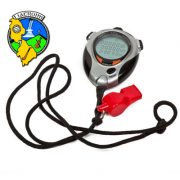Coach education Workshops
The games approach to skill development
1. 21/11/08 – Building the future
2. 22/11/08 – The global skills, part to whole – "Head – Hands – Feet"
3. 06/12/08 – Group management of delivery of skills in match related games 1v1, 2v2 etc.
4. 13/12/08 – Game sense – where skills are seen to play a part in tactics and game plans eg. Cross field, quarter, half and full field games.
As part of our continuing coach education programme, we are delighted to announce that as promised on their appointment, the new Leitrim senior team management of Mickey Moran and John Morrison will conduct a series of coaching workshops under the title "The games approach to skill development".
This over all title will be broken into four workshops, which will bring club coaches from the initial teaching of skills, to how skills play a part in tactics and game plans.
The first of the workshops will take the form of a presentation entitled, building the future, which will focus on all aspects of player development with particular emphasis onÓgetting the foundations correct.
This presentation will take place in the Bush hotel on Friday night 21/11/08 commencing at 7.30pm.The first of the practical workshops, which will concentrate on the teaching of skills will take place the following morning Saturday 22/11 in Drumshanbo GAA grounds commencing at 11.00am.
The two remaining workshops will be practical coaching sessions, and will look at use of games to improve and develop skills. This is an opportunity for all club coaches in Leitrim to gain a wealth of knowledge, from the very best coaches in the Country with out having to leave their County. No coach, no matter what age bracket they are coaching, should miss these four workshops.
Coaching Tips.
All coaches through out the County should log on to the Leitrim GAA website www.leitrimgaa.ie and read the coaching tips articles written by John Morrison. Each week new articles are added, some which were written by John over the past year and some which are current but all the articles are intended to encourage coaches to be open
03-Nov-08 by Thomas Keenan


